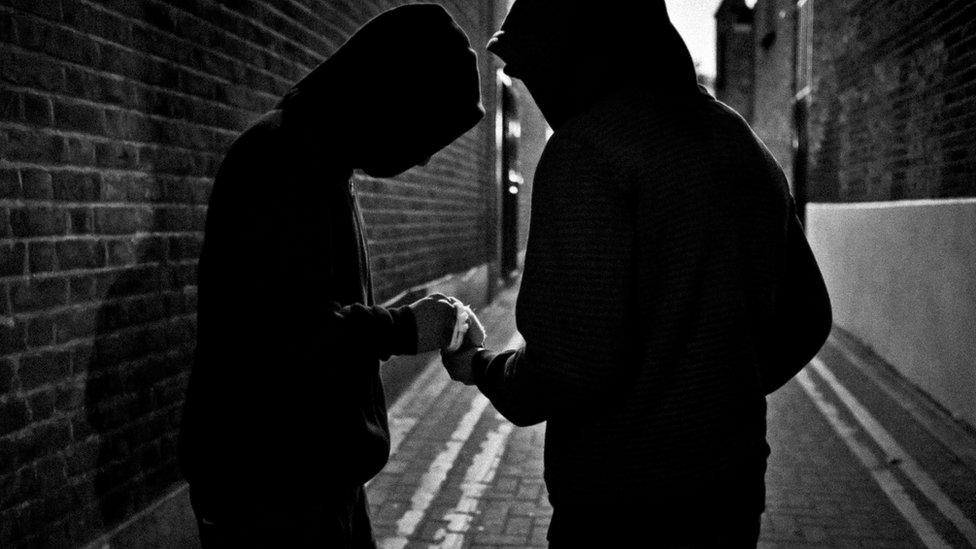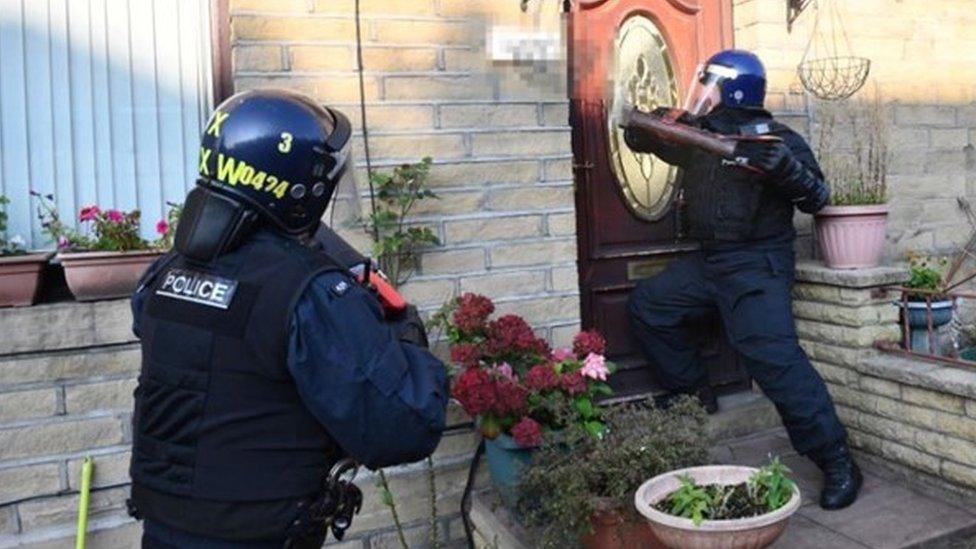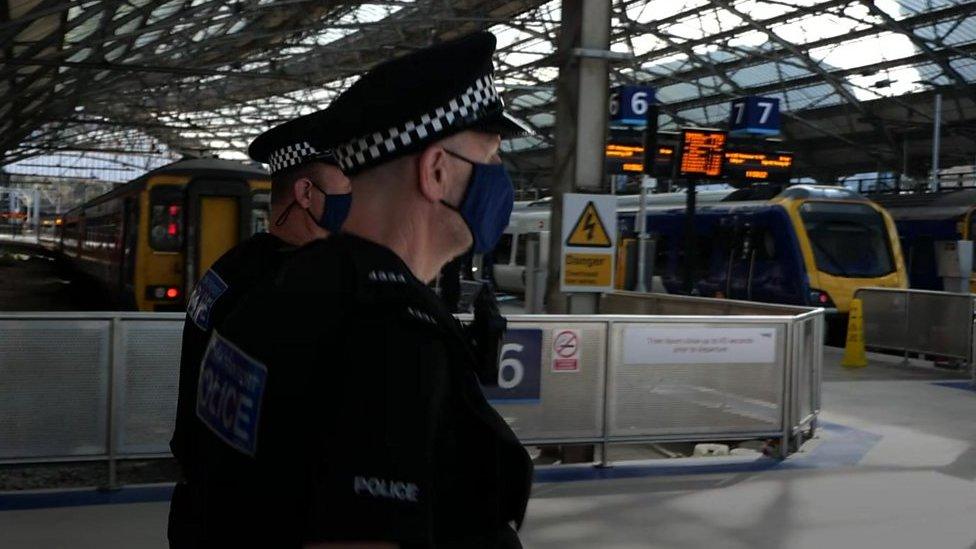County lines: 'Failed' teenager stabbed despite moving away
- Published

"County lines" gangs recruit youngsters to sell drugs in rural areas
A 15-year-old stabbed after he moved 100 miles to avoid drug-dealing "county lines" gangs was left "high and dry" by social workers, his mother has said.
The boy was groomed by a gang before moving to the South East where he was attacked.
His new local authority refused him a local social worker as he already had one, his mother has claimed.
The Children's Commissioner for England said children were "being failed" by not getting the protection needed.
Anne Longfield told BBC South East Today it was "sadly a familiar story" that children involved in gangs and county lines were "lost as they moved around the country".
"Their cases aren't picked up, information isn't passed on, and those children just drop through the net and are exposed to serious danger.," she said.
"It's extremely worrying and it's extremely urgent that this is something that is addressed by children's services and the police both locally and nationally."
'Wouldn't pick his case up'
So-called county lines cases see urban gangs expanding their drug dealing activities into rural areas, often using young people as mules.
They usually have links to locations across the country so it is not easy to just move away.
The teenager had originally been identified as a child in need and assigned a social worker but his mother, identified only as Sarah, said the local authority in the new area "wouldn't pick his case up".
"The social worker in the old area wouldn't commit to the commute to come and visit - the statutory visits he was supposed to [make] - so we were just left high and dry," she said.
Ms Longfield said: "If a child is on a register with social services and they have an open case there is a process there that should be followed, so social workers should be working together.
"I want there to be a mechanism, both locally and nationally, that reaches out and identifies which children are at risk and has the right support there to be able to protect them."
The councils involved have been approached by the BBC for comment.

Follow BBC South East on Facebook, external, on Twitter, external, and on Instagram, external. Send your story ideas to southeasttoday@bbc.co.uk.
- Published25 September 2020

- Published25 September 2020
